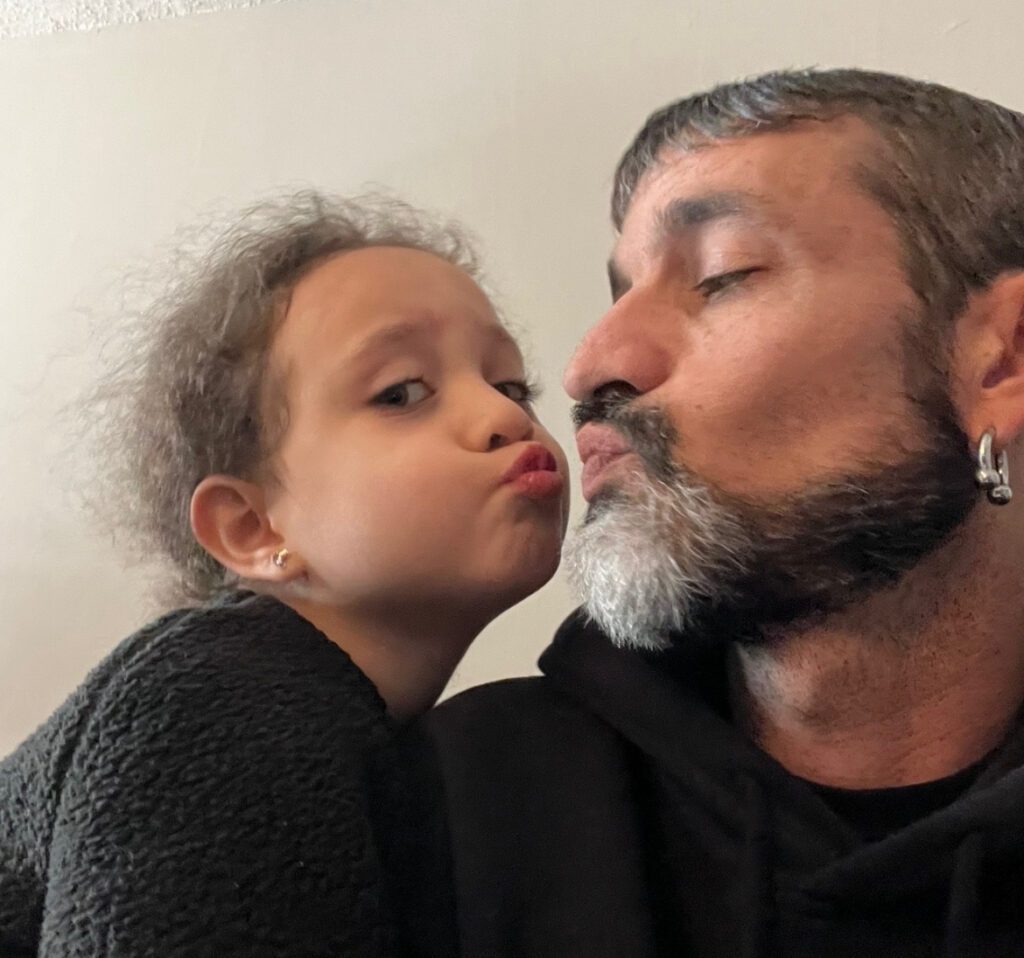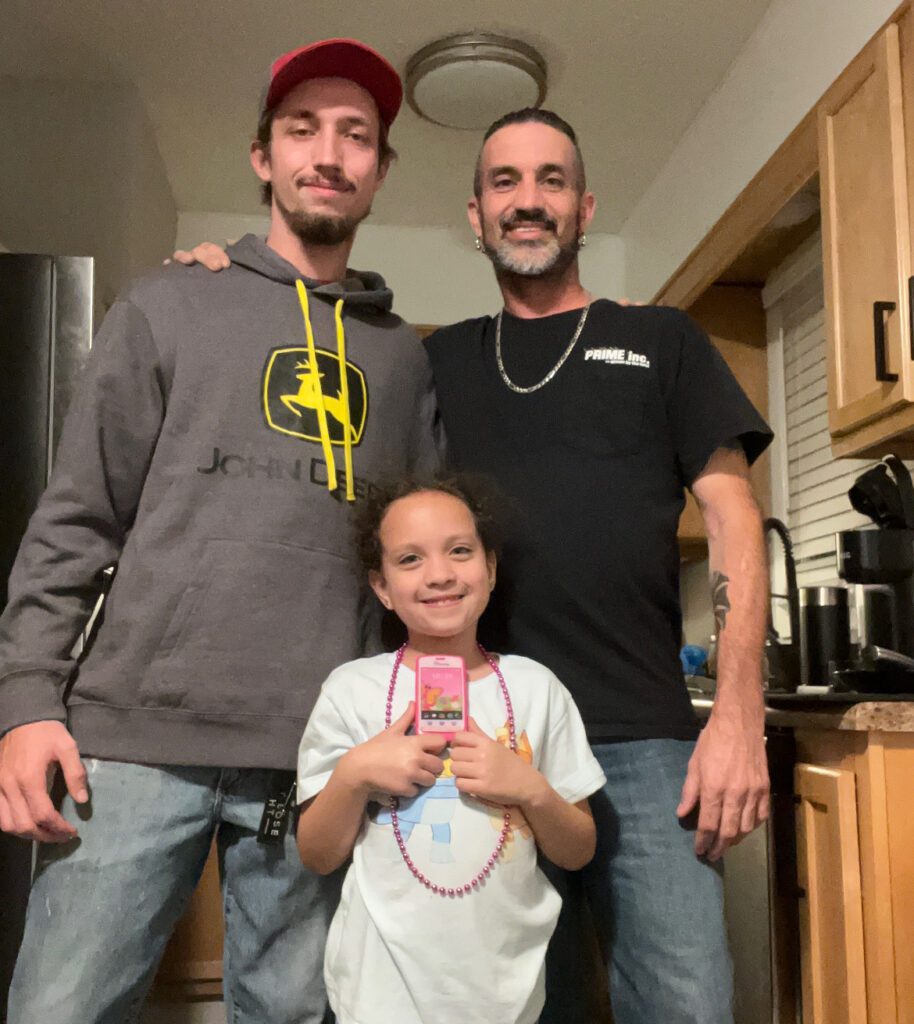Are you ready for back-to-school season? It’s hard to believe August is already here. Children and grandchildren will be starting a new grade, a new chapter, in their lives. A shift from second to third grade, or eighth grade to freshman year, can mean new and exciting changes, but these changes might be scary as well.
As the youngsters in your life make this transition, how can you help them foster a sense of self-compassion? How can words be used to both harm and help? How can Prime dads set a good example?
Prime driver and father of two Jacob Parker is no stranger to these kinds of transitions. Jacob has done a lot of self-reflection to foster self-compassion, which he says has him have a more positive attitude about the world, especially as it relates to his personal faith and religion. We hope you glean a thing or two from his insights just in time for the start of the school year!
Self-compassion involves personal growth
Compassion is a subjective word, and as such, definitions are different depending on who you ask. In general, we’re defining “compassion” as a sincere and heartfelt feeling of sympathy, especially in light of unfortunate circumstances. Compassionate people understand pain as universal and are moved to help relieve suffering.
While people often talk about compassion for less-fortunate people or sick puppies, you can also look inward to practice compassion for yourself. Self-compassion can generally be understood as the practice of being kind, understanding and supportive towards yourself without judging harshly. Most find self-compassion especially helpful when facing challenges or failures in life.
Just like how “compassion” can be defined in many ways depending on the person, Jacob stressed that just because a method has worked for him, doesn’t mean it’ll work for everybody. However, he views his role as an over-the road driver as an asset. To kickstart his personal growth journey and strengthen his faith, he had to do some reconstructing. This included removing profanity and other negative language from his vocabulary.
“I used the training program with Prime to help me a lot to be more patient, understanding and compassionate with students and to work on my relationship with God,” he said.
Working on yourself, without being too harsh, helps you to become better. The desire to become better and the effort that you put forth make all the difference when it comes to showing self-compassion.

Your words have impact
As a trainer and CDL instructor, Jacob understands the value of patience. As the saying goes: You catch more flies with honey than with vinegar. According to Jacob, you never know what someone is going through, so be kind to people.
“It’s important that everyone understands how we can impact others,” he said.
Jacob used the example of telling someone at a truck stop something nice in passing. It doesn’t have to be a big grandiose gesture, but it could be the thing someone needed to hear that turns everything around.
Language and attitude can impact others and yourself. For that reason, Jacob has reduced using the phrase “I hate,” because of its strong negative connotations. He instead uses the phrase “I dislike,” since it’s not as strong.
Jacob says that friends and other drivers have noticed this shift in language. It’s at a point where if they swear in front of Jacob, they apologize. Jacob clarified that he never asked them to stop using swear words—or that they need to filter themselves in front of him. Rather, this is something that works for Jacob as a personal decision.
“What I’m doing is having a positive impact,” he said. “You can see it work like that.”
Help your children practice self-compassion by lifting them up
Jacob has two children: a son in his 20s and a six-year-old daughter. Jacob says it’s important that both of his children know their worth through leading by example.
“I want my daughter to understand her value,” he said, “so that later in life, she’s not settling or selling herself short.”
Jacob says his daughter “deserves to be treated like a queen: respected and adored.” Showing his daughter her worth involves starting positive patterns and interactions from day one, including opening doors for her and setting an example of what she should expect from future relationships.
Jacob says that showing his son his worth is similar.
“Live by example; children observe that stuff,” Jacob said.

Hold yourself to a high standard; set goals that work for you
Jacob agrees with the phrase “you are your own harshest critic.” While working as a diesel mechanic for over 20 years, he made a few costly mistakes. He said that he doesn’t let mistakes hold him back, both in the past and now.
“If I stop, then I’m accepting mediocrity,” he said. “I expect the highest level of performance because I’m capable. Mediocrity is not acceptable for me. Do everything you can to use your gifts to your fullest potential.”
Self-compassion allows you to know your worth. For Jacob, it’s a practice of integrity. Knowing your worth allows you to set realistic goals for yourself.
“I want everybody around me to succeed,” Jacob said. “If they finish ahead of me, that’s good! It’s a win for everybody. That’s the goal. I’m secure enough in myself that I never have to feel better than anybody.”
Practice mindfulness, and be open to change and constructive criticism
For Jacob, mindfulness involves a level of self-awareness: a 360-degree view of yourself, how you’re perceived and your effect on others. Think about not just yourself, but others around you.
“Take a mirror, pick apart problems, be honest, break them down and build up and off of them,” he said.
A perfect example is during CDL training. It can be a stressful environment, and an inexperienced driver might feel like everything is riding on a single test. But Jacob’s two secret ingredients — honesty and perspective — have made all the difference as a teacher.
Before his students take the CDL test, Jacob asks them to step outside the truck, let their guard down and provide honest feedback to him—no hard feelings.
“What would they have liked to see me do differently, and how can I be better?” he said.
This way, Jacob’s students have the opportunity to speak truthfully. They provide an outside perspective through their feedback.
In turn, Jacob takes the feedback he receives and makes an effort to work on it, grow as a professional and be an even better teacher. He says it’s a “constant effort to get that outside perspective so I can work on myself.”

Final Words
For Jacob, prayer and having a positive mindset have helped him. Pointing again to his faith, he put an emphasis on the Armor of God, particularly the shoes of peace, to set a path for the day ahead.
If you’re struggling to be self-compassionate, Jacob suggests stopping at a rest stop, taking deep breaths, focusing on what you can control, letting go and leaving those problems at the rest stop while you keep on trucking.
“Worrying is like being in a rocking chair: You can go a hundred miles an hour and go nowhere,” Jacob said. “I pray and talk to God all day long. He’s my peace. I lean on him for everything. I don’t allow myself to be in the wrong mindset.”

Author
-

Dora joined the Good Dads team in 2024 and has a Bachelor's degree in journalism with a minor in creative writing at Missouri State University. She grew up with a truck driving father and loves reading, writing and anything related to theater.
View all posts

